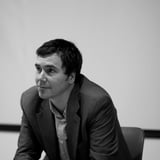Summary
Constantly improving processes and embracing an iterative mindset can be difficult. In this session, I’ll share unexpected hurdles I faced while leading large-scale changes and how you can avoid them. We'll dive into key moments where I hit roadblocks and more importantly, I'll share the valuable lessons I learned the hard way. Let’s turn my “list of things I wish I knew” into actionable best practices that you can apply to lead change more effectively.
Key Insights
-
•
Doubling a team’s size can drastically reduce process maturity and create new challenges in scaling tools and workflows.
-
•
Failing to thoroughly vet feedback before acting can lead to choosing suboptimal solutions that cause more disruption.
-
•
Piloting changes on a smaller scale helps uncover issues early and builds stakeholder buy-in before full implementation.
-
•
Assessing the urgency of feedback involves understanding who it impacts, if it blocks critical work, and possible temporary workarounds.
-
•
Feedback should be viewed as data, recognizing whether it reflects the majority or a small subset to avoid biased decisions.
-
•
Locking processes from change for 1-2 months creates stability and sustainability, especially when managing multiple teams.
-
•
Documentation of changes, including rationale, approvals, alternative options, and pilot outcomes, prevents repeating past mistakes.
-
•
Engaging trusted colleagues can help mitigate personal bias when assessing feedback.
-
•
Using anecdotal team feedback helps leaders appreciate the human impact of change and the importance of pacing.
-
•
Managing change frequency is a balance that requires gauging team health through surveys and direct human connection.
Notable Quotes
"If you dug deeper into feedback, you'd find ways to address issues without a big change."
"Leading change is like shopping—take time to find the right store before you buy."
"Piloting your ideas before committing helps prevent disruption and saves energy in the long run."
"Processes are never perfect, but thoughtful testing limits disruption for your team."
"We forget a lot of details over time; documentation saves us from repeating mistakes."
"Assessing feedback urgency means understanding if the issue blocks critical work or if there are workarounds."
"Using pilots can get buy-in from stakeholders who might resist broad change initially."
"Anecdotal feedback from team members helps leaders understand the real impact of change."
"More frequent change isn't always better; good communication and team pulse are key."
"Not everything that is faced can be changed, but nothing can be changed until it is faced."
Or choose a question:
















More Videos

"More ways to contact support—chat, email, phone—are essential because different disabilities require different options."
Sam ProulxOnline Shopping: Designing an Accessible Experience
June 7, 2023

"We want to build consultants who can solve problems across a variety of projects and clients."
Ignacio MartinezFair and Effective Designer Evaluation
September 25, 2024

"Transformation is new ways of thinking and eventually doing; we won’t have all the answers at the start and that’s okay."
Sarah Kinkade Mariana Ortiz-ReyesDesign Management Models in the Face of Transformation
June 8, 2022

"The Shakers patented clever affordances like chair buttons that let you rock without damaging wooden floors."
Daniel GloydWarming the User Experience: Lessons from America's first and most radical human-centered designers
May 9, 2024

"Traditional metrics create a dangerous illusion where we optimize for what we can measure, not what people actually need."
Patrick BoehlerFishing for Real Needs: Reimagining Journalism Needs with AI
June 10, 2025

"Our AI tools help with speed and efficiency, and also help save money by reducing redundant research."
Andy Barraclough Betsy NelsonFrom Costly Complexity to Efficient Insights: Why UX Teams Are Switching To Voxpopme
September 23, 2024

"Technology moves faster than policymaking — that’s the pacing problem we need to address."
Alexandra SchmidtWhy Ethics Can't Save Tech
November 18, 2022

"The greatest sin of the designer is to say I have the answers and no one else is allowed to have them."
Louis RosenfeldDiscussion: What Operations can teach DesignOps
November 6, 2017

"Sketch made it possible to build a scalable library that millions of customers rely on with just a couple clicks."
Mitchell BernsteinOrganizing Chaos: How IBM is Defining Design Systems with Sketch for an Ever-Changing AI Landscape
September 29, 2021
















